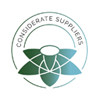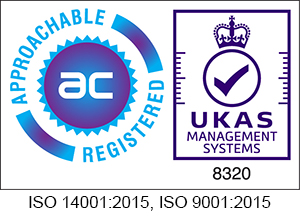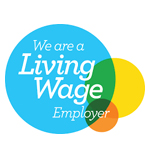How to save a ton of carbon every month with very little effort
According to Wikipedia, "Corporate Social Responsibility, often abbreviated "CSR," is a corporation’s initiatives to assess and take responsibility for the company's effects on environmental and social wellbeing. The term generally applies to efforts that go beyond what may be required by regulators or environmental protection groups".
CSR policy functions as a self-regulatory mechanism whereby a business monitors and ensures its active compliance with the spirit of the law, ethical standards and national or international norms. With some cases, a firm's implementation of CSR goes beyond compliance and engages in "actions that appear to further some social good, beyond the interests of the firm and that which is required by law
Woman Hugging Bear.jpg
The Financial Times quotes Definition of corporate social responsibility (CSR) as:
“A movement aimed at encouraging companies to be more aware of the impact of their business on the rest of society, including their own stakeholders and the environment” The FT goes on to site Unilever as a multinational corporation, in the food and beverage sector, with a comprehensive CSR strategy. The company has been ranked ‘Food Industry leader’ in the Dow Jones Sustainability World Indexes for the 11 consecutive years and ranked 7th in the ‘Global 100 Most Sustainable Corporations in the World’.
The FT goes on to site Unilever as a multinational corporation, in the food and beverage sector, with a comprehensive CSR strategy. The company has been ranked ‘Food Industry leader’ in the Dow Jones Sustainability World Indexes for the 11 consecutive years and ranked 7th in the ‘Global 100 Most Sustainable Corporations in the World’.
Environmental issues: One primary focus of corporate social responsibility is the environment. Businesses regardless of size have a large carbon footprint. Any steps they can take to reduce those footprints are considered both good for the company and society in general.
Sustainable sourcing is at the heart of all good procurement initiatives. Buyers are increasingly being targeted with low carbon solutions and finding ways to implement low cost high quality affordable sourcing.
Procurement standards BS 8903 and ISO 26000 track and measure all aspects of organisations ethical, sustainability and low carbon sourcing. Government and global legislation from the Kyoto Protocol and the Paris agreement are being implemented by the Department of Energy and Climate Change and The Environment Agency.
Looking at toilet paper in particular the current UK consumption per head of capita is approximately 110 rolls per year. The carbon used for the manufacture of Virgin Tree sourced tissue is 2grams per sheet, that is 1,620kg of carbon per month or 19.44 tons per year. The equivalent in Bamboo is 0.69grams, or 558.9kg of carbon or 6.7 tons per year. For each department of 1,000 people you can save 12.74tons of carbon per year. Changing from tree tissue to Bamboo can represent a 70% carbon footprint reduction in your tissue range. This measurable change is something that can be added to your annual report and sustainability objectives. Make a difference in the tissue category and be ready for upcoming targets and legislations.
Changing from tree tissue to Bamboo can represent a 70% carbon footprint reduction in your tissue range. This measurable change is something that can be added to your annual report and sustainability objectives. Make a difference in the tissue category and be ready for upcoming targets and legislations.
We consume 27,000 trees per day, just on toilet tissues.
That there are more than 100,000 chemicals used in commercial tissue and wipes.
Some chemicals such as B.P.A. carry potential health hazards and are in wide variety of recycled toilet tissue.
Bamboo grows 20-30 times faster than Trees.Bamboo is skin friendly and an excellent alternative fibre for producing tissue products.
- Sustainable, fast renewable & biodegradable.
- Soft and skin friendly, super absorbent.
- Anti-bacterial, anti-fungal and odour resistant.
- Hypo allergenic, perfect for sensitive skin.
- Free from P.A, formaldehyde, chlorine, fragrance, de-inking agents.
As Managing Director of one of the leading Janitorial Distributors in London my company are constantly looking for new ideas that not only help ourselves but more importantly our clients attain high levels CSR. For more information on this amazing concept email me, gary@janitorialexpress.co.uk to obtain a free information pack.
For more information please enter your details below or visit our web site, alternatively give us a call on 020 7700 3322 or email sales@janitorialexpress.co.uk






